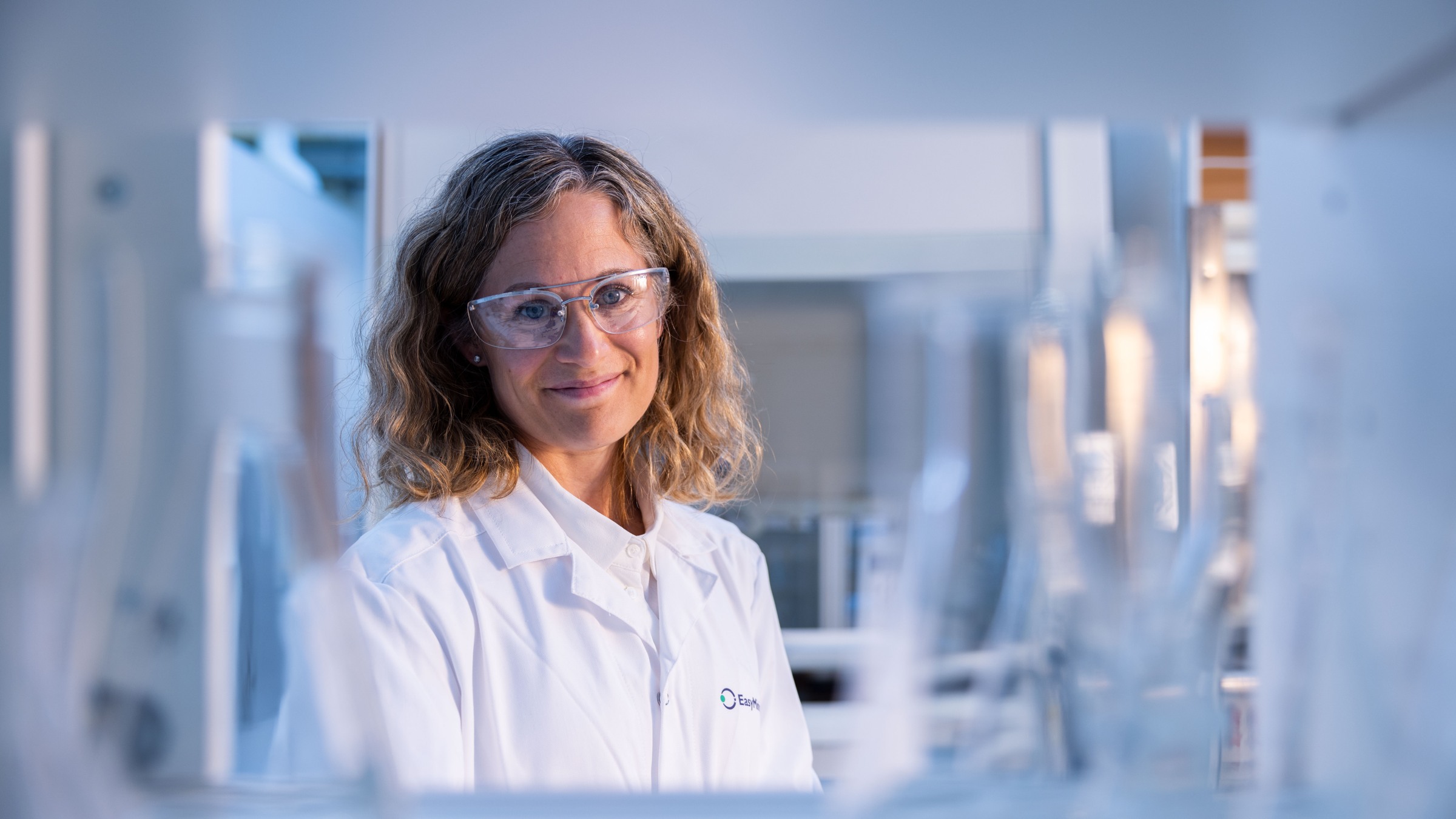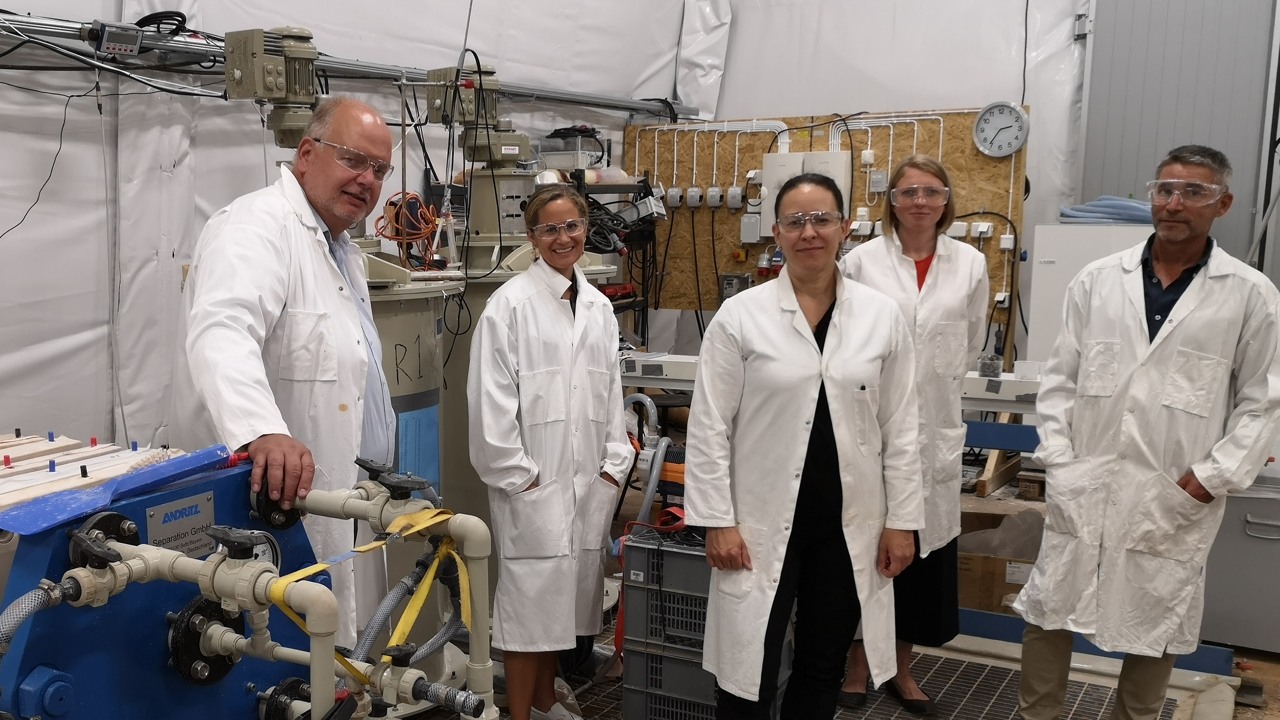
She is making climate-friendly products from waste
Sara Stiernström’s interest in environmental issues took her from a course in ecotoxicology* at Uppsala University to a Ph.D. In Applied Environmental Science at Stockholm University. It’s not just fantastic colleagues that make EasyMining the perfect workplace for Sara, but also the opportunity to make circular economy a reality.
04 Mar 2023In the course of her research, Sara encountered representatives from EasyMining’s parent company, Ragn-Sells, on a number of occasions, and they became interested in her research in ecotoxicology and waste classification. Talks led to talks, which led to interesting contacts, and in 2014, the year after Sara completed her thesis, she started as an environmental specialist at Ragn-Sells. An interest in working closer to the business saw her progress through the company, and for almost the last 3 years Sara has been working at Ragn-Sells’ innovation company, EasyMining, as their Product Manager.
– EasyMining provides a fantastic opportunity to contribute to smart circular solutions. Identifying and creating processing pathways from waste to new products is, from an environmental and legislative perspective, precisely what an ecotoxicologist is good at, says Sara.
From recovery to new products
Sara often comes back to the terms circular economy and circular solutions. Achieving this requires a new kind of collaboration throughout the entire value chain, and Sara and her colleagues are working on a lot of different things to ensure that this chain hangs together. They optimise chemical recovery, look at the upstream market to identify customers and the correct raw materials, and convert waste to pure and low-environmental impact products wanted by downstream customers. The material obtained by EasyMining from various waste streams can be converted to a large number of different products for lots of different markets. Sara points to one example, phosphorous, which alone has three different potential markets: conventional farming (mineral fertiliser), organic farming and as feed phosphate.
– We see considerable potential in organic farming, and EasyMining has trialled growing ryegrass in greenhouses using its phosphorous product as a slow release fertiliser, but as yet it's not allowed onto the market for purely legal reasons, explains Sara.
The same goes for feed phosphate. At EasyMining, this kind of feed has been trialled extensively in chickens and pigs, in collaboration with Lantmännen and SLU (the Swedish university of Agricultural Sciences), and with good results.
– We can save a lot of carbon dioxide here by using recovered phosphorous, she adds.
Quality over origin – the challenge of current legislation
As product manager, legislative issues are one of the main areas of focus. Challenges exist here because most legislation is still linear, i.e. focusing on origin instead of quality. Feed legislation fundamentally states that “anything recovered from wastewater, irrespective of additional processing, is prohibited.”
Sara sees it as a fun challenge to try to open these legislative blocks to using nutrients obtained from waste, though at the same time it can also be rather frustrating.
Sara is part of an influence team within Ragn-Sells which focuses primarily on lobbying for the creation of legislation in order to allow the market to be opened up to recovered products. There is considerable interest in their work among politicians throughout Europe, and they are often used as the good examples showing that a new approach is not only possible, but that its time has come. Sara thinks she can see positive trends, with new legislation and initiatives for greater requirements for recycling nutrients from wastewater processing in the pipeline. Although EasyMining is currently working at a European level, it is clear that there is a global need for their solutions.
 Representatives from Ragn-Sells and Sweden's former Minister of the Environment Maria Wetterstrand (to the right of Sara) visiting EasyMining.
Representatives from Ragn-Sells and Sweden's former Minister of the Environment Maria Wetterstrand (to the right of Sara) visiting EasyMining.
Focusing on the product and the customer
– The best part of this job is being a part of this fantastic team which, together, is really making circular economy possible, says Sara, highlighting two decisive areas for achieving this.
One is to create requirements and incentives for the manufacturing sector to demand and use recovered products, as the focus is still on the recycling industry to solve the circular economy without there being a market. The other is pricing, as it is too cheap to produce new products.
A good, robust and sustainable process is also dependent on being able to detoxify waste in order to create risk-free loops. This requires specific processing stages, which the politicians and users have to understand, as they are costly.
– But it doesn’t always have to be more expensive, explains Sara. We will have recycled pure products competitive on the existing market - also from a price perspective, she continues.
Working with customers all the way along the value change is essential in order to be able to create a circular business model. Both parties must be able to trust each other so that all the pieces of the puzzle fit together, especially if the product is intended to replace something they currently use. Quality assurance is incredibly important as part of the job of product manager: creating customer contacts, sending out samples, follow-up, evaluation, implementing required changes and then going back to the team in order to optimise the process and the products.
From circular economy to circuit training
Sara describes the people she works with as a team with an incredible body of expertise, people who are able to work together to resolve difficult problems linked with chemical recovery.
– We have a lot of fun together! Just working as part of a team is important for me, rather than sitting by myself, getting worn down. I believe that our parent company Ragn-Sells recognises and values the excellence that exists here at EasyMining, and sees that as the key to solving a number of difficult social challenges and creating interesting circular solutions for the future. It's a good feeling, says Sara.
Sara's active involvement in the Friskis och Svettis exercise organisation in Uppsala will also benefit her colleagues. There is a good sign-up rate to the open-air lunchtime circuit training session, with a lot of people finding it a good and easy way to look after their health.
– They love it when I shout at them, Sara concludes with a smile.
*Ecotoxicology can be described in simple terms as biochemical environmental science. It is a branch of science that has emerged from the growing understanding over the last 40-50 years of the environmental consequences of chemical use in the present age.